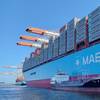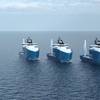In December of last year, the National Transportation Safety Board (NTSB) and the US Chemical Safety and Hazard Investigation Board (CSB) stated that the two agencies had signed a Memorandum of Understanding providing that the NTSB would be the lead agency for investigating transportation-related accidents involving the processing, handling, or storage of a chemical substance that result in death, serious injury, or substantial property damage.
The CSB is an independent, scientific investigatory agency (not a regulatory or enforcement body) created by the Clean Air Act Amendments of 1990, whose mission is to promote the prevention of major chemical accidents at fixed facilities. Because CSB is similar to, and in many ways, modelled on the NTSB, Public Law 101-549 contained provisions in it that required an MOU to be developed and signed by both entities. The MOU is designed to prevent duplicative investigations and disputes over jurisdiction.
In September 2002 NTSB also signed an MOU with the US Coast Guard resolving a long-standing uncertainty over how to determine which entity would lead the investigation of a major marine accident. The USCG/NTSB MOU gives NTSB the right to elect to lead investigations of accidents that threatened high loss of life or substantial property damage. Major accidents are broadly defined as involving: the loss of six or more lives; the loss of a mechanically propelled vessel of 100 or more gross tons; property damage estimated at USD 500,000 or more; or serious environmental damage due to a hazardous materials release.
Like the CSB MOU, the USCG MOU was a response to legislation requiring the two agencies to clarify when the NTSB will lead a marine investigation and to develop standards for determining if an accident involves significant issues related to the Coast Guard's performance of its safety functions that may require independent review. For the most part, the NTSB expects to concentrate its activities on passenger vessels and those marine casualties that risked or threatened high loss of life.
Neither of the MOUs stands to severely impact tankship operations or contingency planning.
Source: Intertanko
Featured videos

Tracking Foreign Vessels Working in the U.S. Jones Act Market

Inside the Electrified Truckable Tug

Inmarsat Enhances Service to Drive Digitalization
Subscribe for
Maritime Reporter E-News
Maritime Reporter E-News is the maritime industry's largest circulation and most authoritative ENews Service, delivered to your Email five times per week









